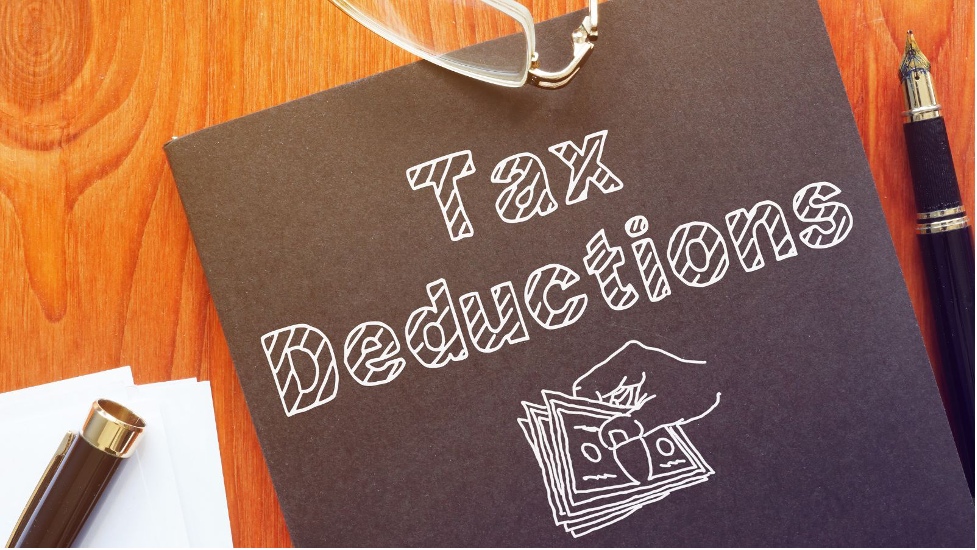By Laurel Kutler, CFP®
If you run a small business or startup, making the most of your profits is essential to both support your family and reinvest in your company. Taking advantage of small business tax deductions in 2025 can help reduce your tax burden and keep more of your hard-earned money.
Understanding these deductions now means you can proactively optimize them before the tax year ends. A financial advisor at ABLE Financial Group can help you identify which deductions apply to your business and develop a tax-efficient strategy. In the meantime, here are some key 2025 tax deductions that small business owners should know about.
The Best Tax Deductions for Small Businesses in 2025
Many expenses that keep your business running can generate tax deductions or credits that reduce the taxes you pay on your profits. A key to taking advantage of those tax breaks is to create a plan and maintain good records to track them.
Consider these tax deductions for small businesses in 2025.
The Cost to Start Your Business
If you’re starting a new business in the new year, you can deduct the costs you incur to launch your company. You can deduct up to $5,000 in startup costs for the year you begin operations. Costs above that—up to $50,000—must be spread out (amortized) over the next 15 years.
Business Meals and Entertainment
You can deduct some types of entertainment, like company parties, along with up to 50% of the costs of food and drinks you purchase for business purposes. The expenses must be directly related to your company, and you must document the following:
- Date and time of the event
- The business relationship of those in attendance
- The total cost
Keep a receipt and write detailed notes about the outing on the back of the receipt. Consider consulting a tax professional about IRS limits on deducting entertainment expenses.
Work-Related Vehicle Use
If you use your vehicle exclusively for work, you can write off what you spend to maintain and operate it. If you also use it for personal errands, only the expenses related to your business can be deducted. You can claim your business mileage or use the standard mileage rate from the Internal Revenue Service, which is $0.70 per mile in 2025.
Office Supplies and Equipment
Office supplies and equipment are some tax deductions for small businesses you shouldn’t overlook. Computers and work-related software, printers, paper, and pens used during the year they were purchased can be deducted. You also can write off postage and shipping expenses. File away your receipts to have them available at tax time.
Employee-Related Expenses
You can deduct certain employee-related expenses deemed reasonable and necessary, including:
- Salaries
- Vacation pay and sick time
- Health and retirement benefits
- Life insurance
- Education
- Meals and lodging
To claim these tax deductions for small businesses, you must comply with all employment laws and regulations.
Professional Services
As a small business owner, you know that professional services from financial advisors, attorneys, and accountants can help you build a successful company. The cost of professional services and fees for financial planning and consulting for business strategy can be deducted from your taxes. You must keep good records of the fees and services.
These are just a few of the tax deductions for small businesses available. You also can claim tax credits and deduct expenses related to marketing and advertising, home office space, utilities, business loan interest and bank fees, business insurance, and more.
Connect With a Financial Advisor for Small Business Tax Deductions
Strategic tax planning supports your business to make the most of every available credit and deduction. At ABLE Financial Group, we understand the complexities small business owners face, and we’re here to provide our knowledge and guidance.
To learn more about our team and the ways we can help guide you, call 480.258.6104 or email adam@ablefinancialgroup.com today.
About Laurel
Originally from a small town in North Carolina, Laurel Kutler is a graduate of the University of North Carolina at Charlotte. She earned a degree in communications with a focus in public relations.
Beginning her career as a financial advisor with Edward Jones, Laurel is driven by a combination of passion for finance and a commitment to make a positive impact on individuals’ lives. She saw financial advisory as a unique opportunity to empower others with the knowledge and strategies needed to secure their financial futures.
Laurel specializes in working closely with 401(k) plans and their participants, as well as assisting divorcees and widows. She brings energy and enthusiasm to solving client needs and often with the empathy needed to help them navigate difficult situations.
Currently residing in Scottsdale, Laurel has diverse interests outside of her professional life. She enjoys hiking, hosting dinner parties for friends, and takes pleasure in traveling whenever possible.




